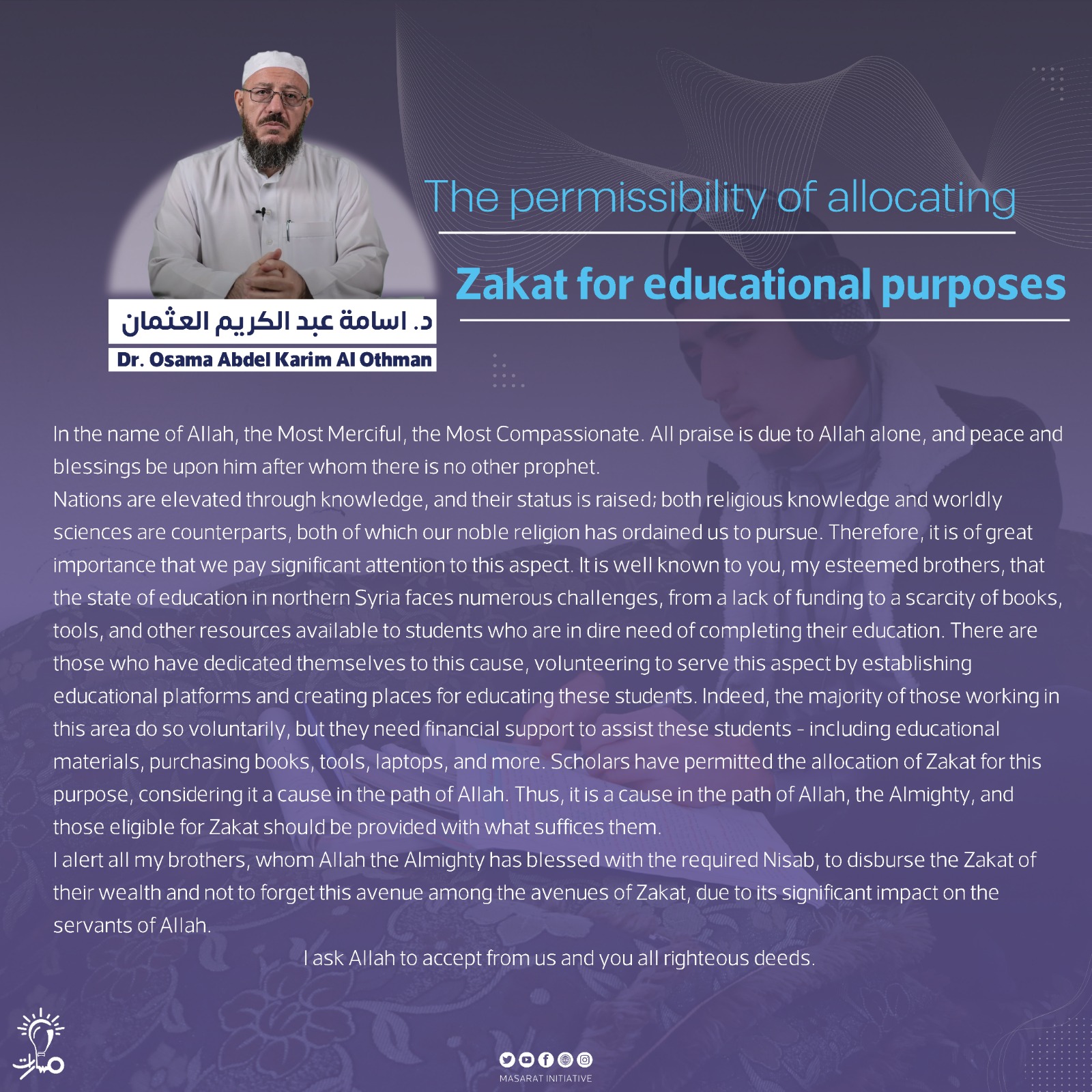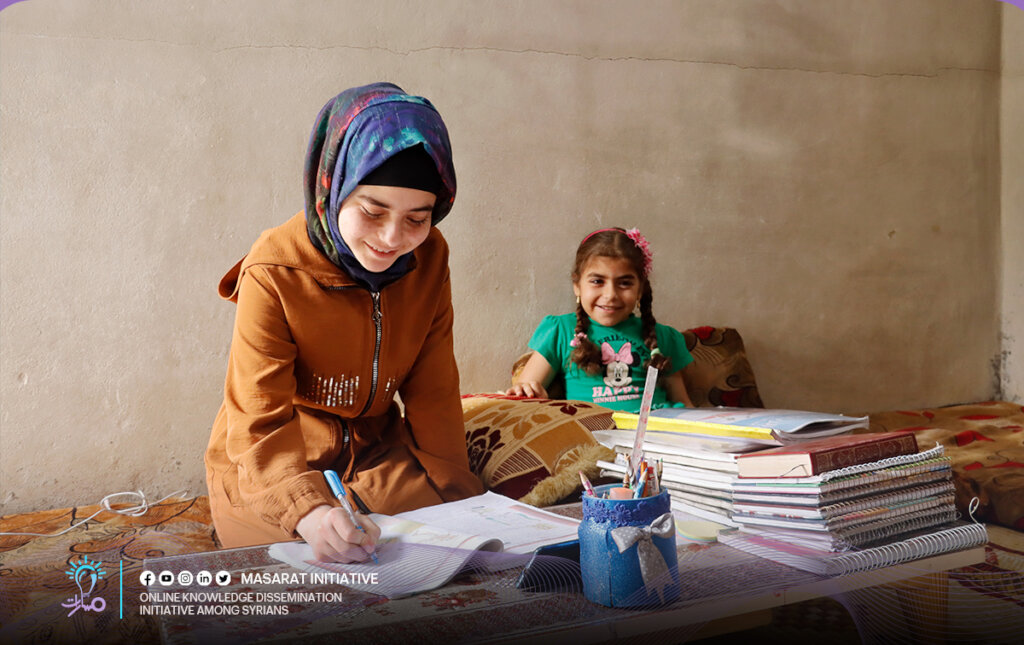Dhul-Hijjah is the last month of the Islamic lunar year, which is based on the moon’s cycle around the Earth. Out of His mercy, Allah has distinguished certain times and seasons with extra blessings and rewards to motivate believers to increase their good deeds and renew their determination. Among the greatest of these seasons are the days of Hajj and the ten days of Dhul-Hijjah, which Allah swore by in His book to highlight their honor and significance. Allah says, “By the dawn * and by ten nights * and by the even and the odd” (Al-Fajr: 1-3).
The Prophet Muhammad (peace be upon him) testified that these are the greatest days of the world, and that righteous deeds during them are better than any other time. Ibn Abbas (may Allah be pleased with him) narrated that the Prophet (peace be upon him) said, “There are no days in which righteous deeds are more beloved to Allah than these ten days.” They asked, “Not even Jihad for the sake of Allah?” He said, “Not even Jihad for the sake of Allah, except for a man who goes out with his life and wealth and returns with nothing.” (Reported by Al-Tirmidhi)
When Do the Ten Days of Dhul-Hijjah Begin?
The ten days of Dhul-Hijjah begin with the start of the last month of the Islamic lunar year, which is the twelfth month in the lunar calendar. When the crescent of Dhul-Hijjah is sighted, the last month of the lunar year begins.
Allah says, “Indeed, the number of months with Allah is twelve in the register of Allah from the day He created the heavens and the earth; of these, four are sacred. That is the correct religion, so do not wrong yourselves during them” (At-Tawbah: 36).
This year, Dhul-Qa’dah had only 29 days, so Friday, June 7, 2024, was the first day of Dhul-Hijjah. Therefore, the Day of Arafah is on Saturday, June 15, and the first day of Eid al-Adha is Sunday, June 16, 2024.
The Virtue of Sadaqah During the Ten Days of Dhul-Hijjah
Regarding the virtue of Sadaqah during the ten days of Dhul-Hijjah, Ibn al-Qayyim (may Allah have mercy on him) said, “Sadaqah has a remarkable impact in averting calamity, even from a sinner or oppressor, and even from a disbeliever. Indeed, Allah averts various types of calamities due to it, and this is well-known among people, both the elite and the commoners.”
Sadaqah is recommended throughout the year because of the goodness Allah has promised to those who give. Allah says, “Who is it that will loan Allah a goodly loan so He may multiply it for him many times over?” (Al-Baqarah: 245).
Thus, its reward is even greater during seasons of worship, especially in the days loved by Allah, the ten days of Dhul-Hijjah. The Prophet (peace be upon him) said, “Seven people will be shaded by Allah in His shade on the day when there will be no shade except His shade,” and among them, “a man who gives in charity and conceals it so that his left hand does not know what his right hand has given” (Agreed upon).
Donating Dhul-Hijjah Charities to Support Students in Syria
No one can deny the difficult situation faced by our people in northern Syria after years of crisis that have affected their lives. The students are among the most affected, as the educational infrastructure is very weak, and life’s hardships have forced many to drop out of school and take up work that drains their time and childhood.
During these ten days of Dhul-Hijjah, when rewards are multiplied, education is one of the best fields to direct your charities, as it benefits not only the students but also their families and communities. Masarat Initiative calls you to donate Dhul-Hijjah charities to support students in Syria, helping them return to the path of education that builds their future. We remember the virtue of deeds in these days, as the Prophet (peace be upon him) said, “There are no days in which righteous deeds are more beloved to Allah than these ten days.” They asked, “Not even Jihad for the sake of Allah?” He said, “Not even Jihad for the sake of Allah, except for a man who goes out with his life and wealth and returns with nothing” (Reported by Al-Bukhari).
Masarat Initiative is particularly concerned with educational projects for students in northern Syria affected by wars and disasters. By contributing to its projects, you combine the blessings of charity and good deeds during these blessed days by supporting educational projects and student sponsorship programs.
What to Do During the Ten Days of Dhul-Hijjah?
The most frequently asked question at the beginning of this blessed season is: What should you do during the ten days of Dhul-Hijjah?
Perhaps the most important point is to start this season with repentance and avoiding sins and misdeeds, for no one is deprived of goodness except because of their sins. The Messenger of Allah (peace be upon him) encouraged increasing righteous deeds without specifying their type. Here are some deeds that should not be missed by those seeking righteousness during the ten days of Dhul-Hijjah:
- Increase in righteous deeds.
- Prayer.
- Fasting.
- Performing Hajj and Umrah.
- Takbeer (saying “Allahu Akbar”), Tahleel (saying “La ilaha illallah”), and Tahmeed (saying “Alhamdulillah”).
- Reciting the Quran.
- Sadaqah
- Fasting on the Day of Arafah.
- Lowering the gaze from forbidden things.
- Performing prayers in congregation.
- Honoring parents and maintaining family ties.
- Performing night prayers, even if only a few rak’ahs.
- Enjoining good and forbidding evil.
- Guarding the tongue and other faculties.
Actions Associated with Sightseeing the Crescent of Dhul-Hijjah
When discussing the actions related to the sighting of the crescent of Dhul-Hijjah, it is narrated that the Prophet (peace be upon him) used to say when he saw the crescent, “O Allah, bring it over us with security and faith, and with safety and Islam. My Lord and your Lord is Allah. The crescent of guidance and goodness” (Reported by Al-Tirmidhi).
As soon as the crescent is sighted, the blessed ten days begin. It is appropriate to welcome them in a special way and start the best deeds to take advantage of them and gain the promised forgiveness and elevation of ranks.
Best Deeds During the Ten Days of Dhul-Hijjah
The rewards of righteous deeds are multiplied during the season of Dhul-Hijjah, so we strive to invest in them greatly. The Messenger of Allah (peace be upon him) encouraged increasing righteous deeds without specifying their type. The best deeds during the ten days of Dhul-Hijjah include:
- Fasting the first nine days of Dhul-Hijjah.
- Increasing in righteous deeds.
- Increasing the recitation of the Quran and supplication.
- Saying Tahleel, Takbeer, and Tahmeed.
Recommended Deeds During the Ten Days of Dhul-Hijjah
All righteous deeds are recommended during the ten days of Dhul-Hijjah, and they contain great goodness, but the most emphasized of these deeds is fasting, as it is reported that the Prophet (peace be upon him) used to fast them. In the Sunan of Abu Dawood and others, it is narrated that some of the wives of the Prophet (peace be upon him) said: The Messenger of Allah (peace be upon him) used to fast the nine days of Dhul-Hijjah.
The Prophet (peace be upon him) was asked about fasting on the Day of Arafah, and he said, “I anticipate that Allah will forgive the sins of the year before and the year after.”
Fasting During the Ten Days of Dhul-Hijjah
Fasting during the ten days of Dhul-Hijjah is one of the best acts of devotion to Allah, as these are the days He loves the most. It is reported that the Messenger of Allah (peace be upon him) used to fast them. Hafsa (may Allah be pleased with her) said, “The Messenger of Allah (peace be upon him) used to fast the nine days of Dhul-Hijjah, the Day of Ashura, and three days each month” (Authenticated by Sheikh Al-Albani).
Reasons for Fasting the First Ten Days of Dhul-Hijjah
It is recommended to fast these ten days as much as possible. The reasons for fasting the first ten days of Dhul-Hijjah include the fact that the reward for fasting is great with Allah. Abu Hurairah (may Allah be pleased with him) reported that the Messenger of Allah (peace be upon him) said, “Allah said: ‘Every deed of the son of Adam is for him except fasting; it is for Me, and I will reward it.’” When fasting is combined with the virtue of these ten days, the reward is multiplied, by Allah’s will. Benefits include:
- Drawing closer to Allah and increasing faith and piety.
- Forgiveness of sins and erasure of misdeeds.
- Renewing closeness to rituals and acts of worship.
- Attaining great rewards.
Benefits of Fasting During the Ten Days of Dhul-Hijjah
Fasting during the first ten days of Dhul-Hijjah is recommended due to the greatness of these blessed days with Allah. It is one of the great acts of worship that the Messenger of Allah (peace be upon him) recommended. The main benefits of fasting during the ten days of Dhul-Hijjah are that it is a devotion to Allah and following the guidance of His Prophet (peace be upon him).
Fasting on the Day of Arafah has great reward and virtue. The Messenger of Allah (peace be upon him) said that fasting on this day expiates the sins of the past year and the coming year.
Virtue of Fasting During the Ten Days of Dhul-Hijjah
Allah has distinguished the act of fasting with many virtues and special characteristics. Among the virtues of fasting during the ten days of Dhul-Hijjah are:
- Fasting is for Allah, and He rewards it. Abu Hurairah reported that the Prophet (peace be upon him) said, “Every deed of the son of Adam will be multiplied between ten to seven hundred times. Allah said: ‘Except for fasting; it is for Me, and I will reward it. He leaves his desires and food for My sake.’”
- Allah has prepared a gate in Paradise for those who fast, called Ar-Rayyan, from which no one else will enter. The Messenger of Allah (peace be upon him) said, “In Paradise, there is a gate called Ar-Rayyan. Those who fast will enter through it on the Day of Resurrection, and no one but them will enter. It will be said, ‘Where are those who fast?’ They will stand up, and no one but them will enter. When they have entered, it will be closed, and no one else will enter through it.”
- Whoever fasts a single day for the sake of Allah, Allah will distance his face from Hellfire by seventy years. The Messenger of Allah (peace be upon him) said, “Whoever fasts a day for the sake of Allah, Allah will keep his face away from the Fire for seventy years.”
- Fasting will intercede for a person on the Day of Judgment. The Messenger of Allah (peace be upon him) said, “Fasting and the Quran will intercede for the servant on the Day of Resurrection. Fasting will say: ‘O Lord, I prevented him from his food and desires during the day, so allow me to intercede for him.’ The Quran will say: ‘I prevented him from sleeping at night, so allow me to intercede for him.’ They will both be allowed to intercede.”
Fasting the Ten Days of Dhul-Hijjah According to Al-Albani
It is reported in the Sunan of Abu Dawood that some of the wives of the Prophet (peace be upon him) said: The Messenger of Allah (peace be upon him) used to fast the nine days of Dhul-Hijjah, the Day of Ashura, and three days each month, the first Monday and Thursday of the month (Authenticated by Sheikh Al-Albani in Sahih Abu Dawood, 2106).
Virtues of the Ten Days of Dhul-Hijjah
The virtues of the ten days of Dhul-Hijjah are numerous. These are among the best days that Allah has sworn by when He said, “By the dawn, and by ten nights” (Al-Fajr: 1-2). Therefore, striving in worship during them is one of the greatest acts of drawing closer to Allah. Some virtues of these days include:
- Allah swore by the ten days of Dhul-Hijjah in the Quran, and Allah does not swear by anything except that which is great.
- Righteous deeds during the first ten days of Dhul-Hijjah have greater rewards than other days.
- On the Day of Arafah, deeds are raised to Allah.
- Allah frees His servants from Hellfire on the Day of Arafah.
- The Day of Arafah is the greatest day of Hajj, where the sins of the past year and the coming year are forgiven.
- The greatest days with Allah are the Day of Sacrifice and the Day of Conquest.
- The obligation of blessed Hajj is performed during the ten days, one of the greatest obligations in Islam.
Virtue of the Ten Days of Dhul-Hijjah According to Al-Nabulsi
Regarding the virtue of the ten days of Dhul-Hijjah, Sheikh Al-Nabulsi says, “The righteous predecessors, when the ten days entered, strove greatly as they strove in Ramadan or even more. This is the secret of the elevation of this Ummah, adhering to the Quran and Sunnah and following the guidance of the righteous predecessors.”
He says, “The best ten days in a Muslim’s life, without a doubt, are these ten days. The best ten nights in a Muslim’s life are the last ten nights of Ramadan. We are between ten days and ten nights. The best ten days are these days we are in, and the best ten nights were those in the last ten nights of Ramadan.”
Virtue of the Ten Days of Dhul-Hijjah According to Ibn Baz
Sheikh Ibn Baz (may Allah have mercy on him) says about the virtue of the ten days of Dhul-Hijjah: “The Messenger (peace be upon him) encouraged righteous deeds during these first ten days of Dhul-Hijjah, and fasting is one of the righteous deeds because the Prophet (peace be upon him) said: ‘There are no days in which righteous deeds are more beloved to Allah than these ten days.’ They asked, ‘Not even Jihad for the sake of Allah?’ He said, ‘Not even Jihad for the sake of Allah, except for a man who goes out with his life and wealth and returns with nothing.’” (Reported by Al-Bukhari in Sahih).
Supplications for the First Ten Days of Dhul-Hijjah
There are numerous supplications from the Sunnah for the first ten days of Dhul-Hijjah. Some of them are:
- The Prophet (peace be upon him) said: “The best supplication is the supplication on the Day of Arafah, and the best that I and the prophets before me have said is: ‘There is no god but Allah alone, He has no partners. His is the kingdom and his is the praise, and He is capable of all things.’”
- The Prophet (peace be upon him) said: “There are no days greater and more beloved to Allah for righteous deeds than these ten days, so increase in them the saying of Tahleel (La ilaha illallah), Takbeer (Allahu Akbar), and Tahmeed (Alhamdulillah).”
- The Prophet (peace be upon him) said: “O Allah, I ask You for all good, immediate and delayed, what I know and what I do not know. And I seek refuge with You from all evil, immediate and delayed, what I know and what I do not know. O Allah, I ask You for the good that Your servant and prophet asked of You, and I seek refuge with You from the evil that Your servant and prophet sought refuge from. O Allah, I ask You for Paradise and whatever brings me closer to it in word or deed, and I seek refuge with You from Hellfire and whatever brings me closer to it in word or deed. And I ask You to make every decree You decree for me good.”
Investing the Season of Worship with Masarat
Masarat Initiative offers you the opportunity to invest in these blessed days with the best acts of charity. Masarat works on several projects supporting students who have dropped out of school in northern Syria. By contributing to these projects, you help illuminate the path of knowledge for these students and guide them towards the hope that education brings. Contribute with us to educational projects and student sponsorship programs, and feel free to contact us for any inquiries.









